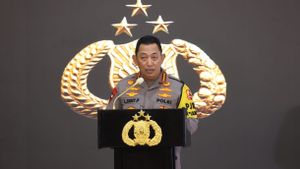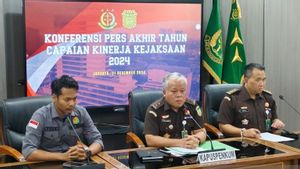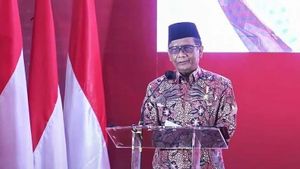YOGYAKARTA - When the honorary staff was removed is being discussed by the Indonesian people. Through the Ministry of Administrative Reform and Bureaucratic Reform (PAN-RB), the government is preparing a settlement of 2.3 honorary workers. The honorary workers in question are those who work in government agencies, especially local governments.
Many honorary workers forget their certainty and the afterlife. However, the government claims that the policy of removing honorary staff will not be in the form of mass dismissal. The government has also determined when the honorary staff will be removed.
The policy of removing energy honorary has been regulated in the Letter of the Minister of PAN-RB Number B/185/M.SM.02.03/2022 dated May 31, 2022. The letter contains the Status of Personnel in the Central Government Agencies and Regional Governments to determine the status of non-energy ASN no later than November 28, 2023.
The news of the policy of removing honorary staff has caused unrest for honorary employees regarding their good fate. As long as these honorary staff are always in the spotlight as one of the problems in Indonesia, especially in terms of salary or income received.
So far, many people have complained and regretted the fate of honorary workers who received a small salary. The amount of salary received by honorary employees is considered inappropriate or not comparable to the sacrifices and dedication made.
The policy of removing honorary staff does not mean that the government will let go of their fate. The government stated that it would offer a win-win solution or the best solution for the fate of honorary staff in the future.
Azwar Anas, Minister of PAN-RB, said that the solution for the fate of 2.3 million honorary employees would be contained in the State Civil Apparatus Act (USU ASN). Azwar said that President Jokowi had given directions to find a middle ground for the continuation of the honorary energy career.
"We are looking for a permanent solution in the ASN Law. There is indeed a direction from the President so that this is looking for a middle ground," said Azwar Anas on Monday (17/7/2023).
Azwar Anas said that the removal of honorary power did not result in mass dismissal for millions of honorary employees. In addition, the solution that will be offered must also not cause swelling in the government budget. The swelling in question is that all honorary staff must be appointed as civil servants directly.
"We are currently enforcing the ASN Law. Hopefully this August will be completed so that it can be an exit for the completion of 2.3 million honorary staff," continued Azwar.
However, the Menpan-RB still has not disclosed in detail what options are to solve the problem of honorary staff. However, Azwar Anas indicated that the options to be given are Government Employees with a part-time Work Agreement (PPPK) in the ASN Law as well as road sweepers and other public places.
In addition, Azwar Anas also indicated that there are other options, namely giving priority to be appointed as ASn for teacher honorary employees who have worked or served for 20 years. Another option is to give priority to be recruited as PPPK for honorary staff in the THK-II category, which so far has not been paid using APBN or APBD funds.
"We have an obligation for THK-II. The amount is large, less than 200 (rib). It has not been fixed for a long time," he said.
In addition, Azwar Anas reminded that no elements should commit fraud, such as delaying their early work time or extending their tenure as honorary staff. This method is likely to be done to facilitate the fulfillment of the requirements for workloads for 20 years in order to get priority on the solutions offered above.
Such is the review of when honorary staff will be removed and how to solve the fate of honorary employees in the future. The government reminds honorary employees within the scope of the central government and local governments not to worry about their fate because there are several solutions offered.
Stay up to date with the latest domestic and other overseas news on VOI. You present the latest and most updated nationally and internationally.
The English, Chinese, Japanese, Arabic, and French versions are automatically generated by the AI. So there may still be inaccuracies in translating, please always see Indonesian as our main language. (system supported by DigitalSiber.id)








